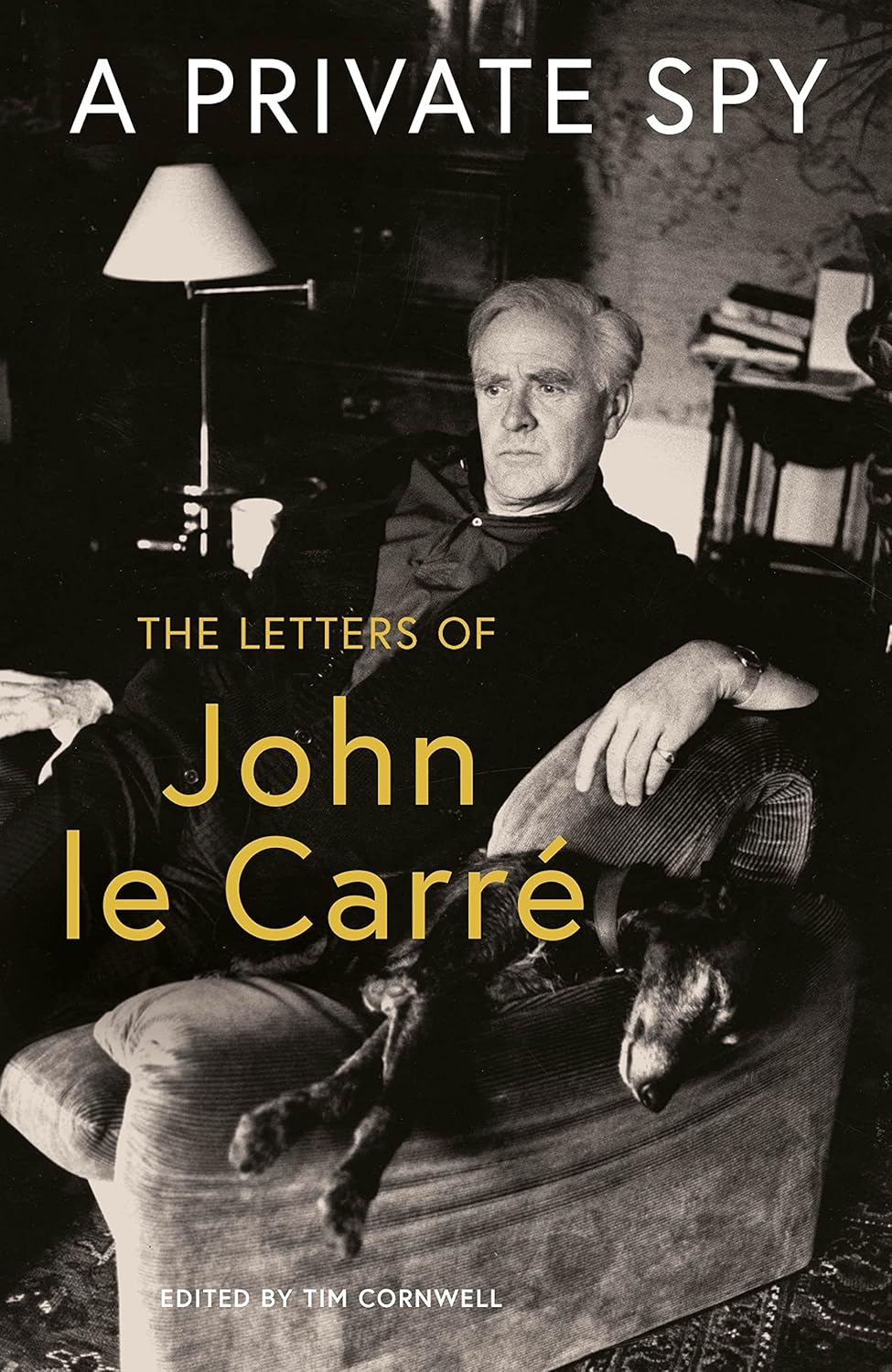
A Private Spy: The Letters of John le Carré 1945-2020
FREE Shipping
A Private Spy: The Letters of John le Carré 1945-2020
- Brand: Unbranded

Description
During this phase, on a holiday in Saint Moritz in 1950, he met Ann Sharp, the daughter of a Royal Air Force officer. This collection is a treasure trove, revealing the late author’s humour, generosity, and wit–a side of him many readers have not previously seen. I can’t come to you yet, there is too much to worry about here,” he wrote on 7 March, and begged her to “wait a little longer please, it’s going to be a good year, but I have King Richard’s monkey on my back and have to wait a little while before I fling it off again.
Susan, concerning my insecurities: these letters that you kiss, and which as time goes by contain my closest secrets, or may … I care terribly that they should never see the light of day.A theme of the novel,” le Carré wrote to his aunt Ella Haymes, who along with her sister Ruby was upset by the book (or at least its reception—they hadn’t read it), “is that hypocrisy thrives upon the silence and the goodheartedness of respectable people, and that deceit, when it passes unchallenged, can be bestowed upon one generation by another.
By treating me as you would like to, you will not remove the root causes of your anger, which I suspect are insecurity and borrowed shame. I never meant to be the person who did all the things you were keen on doing,” he wrote to his brother, an aspiring novelist, “Mr Successful, or Mr Literature. Little old ladies in the Midlands had provided every penny of their savings towards some lunatic scheme which never existed—honest good Bürgers had been legally robbed and ruined, whilst I fattened and grazed on their pastures.When le Carré was sixteen, his father pulled him out of Sherborne School and sent him to Bern University to study German. View image in fullscreen Ex-spy and eminent British novelist John le Carré, pictured here in July 1993. Usually they were dreary, evasive letters loosening vows at the same time they renewed them, qualified, haunted, the reverse of reassuring. Here was a man working things out through his writing, trying to make sense of forces that could be soul-crushing—particularly, in this case, for people on the inside. So I beg you to believe me when I tell you that I share your respect for the qualities and sufferings of women, whose company and talents I indeed greatly prefer to those of men.
The most revealing letter, though, might be le Carré’s gently discouraging reply, in 1988, to a ten-year-old boy who wanted advice on how to become a spy. The book, which was about an East German spy ring in London, introduced readers to the character of George Smiley, an S. He told an audience in 1997: “I was brought up in a bookless household, and I have a natural sympathy for people who grow up without the example of reading, or come late to it, or never come at all. Just now I wd rather be Dutch, German, French, or for that matter Polish, than a Brit subjected to this truly shaming process in which we are engaged.And a very few are intelligent and convey it: in Tinker Tailor, this gift will be pure gold, because it gives such base to the other things – the solitude, the moral concern, the humanity of Smiley – all, because of the intelligence of his perceptions, grow under our eyes and in your care. In them he told her about his work, his life in Cornwall, and aspects of his past that helped to explain why he was the way he was. I have written much about men who are not able to relate to women, because in the male oriented world from which I draw my experience – and indeed, my upbringing – the gap you deplore is, unfortunately, all too common.
It was like trying to speak and not being able, so you try harder, see yourself disintegrate in your imagination, but meanwhile you’re immensely polite to everyone … I’m sure I’ll be all right. Later, in Laos, Westerby meets and falls in love with a young British woman who has been caught up in the drug trade. He asked her to forgive “the awful silence”; and assured her that “I’m not that person anymore and won’t be again. Le Carré was aghast at Brexit and sought Irish citizenship (Ronnie Cornwell’s mother Bessie was Irish). Apart from plumpness, you have all the other physical qualities: a mildness of manner, stretched taut, when you wish it, by an unearthly stillness and an electrifying watchfulness.
He would undertake extensive travel and recruit sources, often paying them handsomely for their time. The never-before-seen correspondance of John le Carré, one of the most important novelists of our generation, are collected in this beautiful volume. I identified most naturally with Webster, of course, who was surely one of your most delicious conceits. This was not how being recruited as a spy had played out in my mind, where a pastiche of scenes from movies and cheap paperbacks had created a fantasy so vivid it almost felt like a memory.
- Fruugo ID: 258392218-563234582
- EAN: 764486781913
-
Sold by: Fruugo
